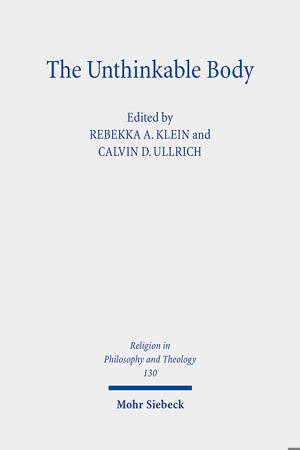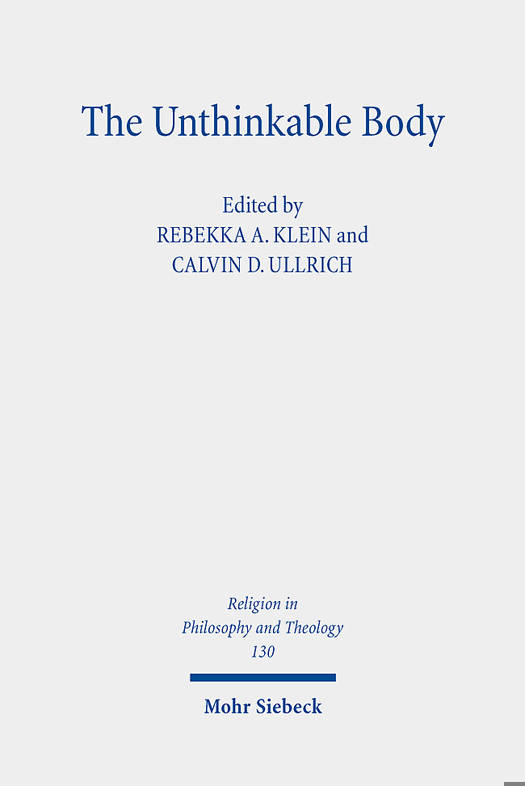
- Afhalen na 1 uur in een winkel met voorraad
- Gratis thuislevering in België vanaf € 30
- Ruim aanbod met 7 miljoen producten
- Afhalen na 1 uur in een winkel met voorraad
- Gratis thuislevering in België vanaf € 30
- Ruim aanbod met 7 miljoen producten
Zoeken
The Unthinkable Body
Challenges of Embodiment in Religion, Politics, and Ethics
€ 114,95
+ 229 punten
Omschrijving
In the era of pandemics, digitalization, mass migration and precarious ecology, the idea of what it means to live as a bodily creature is more important than ever. Descriptions of the body in religion and philosophy have sought to integrate the sources of Spirit and Matter into a comprehensive framework of embodiment. But what is the status of this paradigm today? In thinking humanity as a unified being of bodily perception, are there not dimensions of corporeal existence that remain constitutively 'unthought', and what are the implications of this insight for religion, politics, and ethics? What is one to make of the body if it is not simply a canvas for meaning, but rather a transgressionary medium made up of diverse forces and affects? What kinds of tensions are involved in the body's materiality and exposed existence to all forms of 'the natural'? What is now the role and limits of 'touch' within our intersubjective social existence? Do we perhaps need to retain the centrality of the 'lived-body' concept as a 'carrier of meaning', or does the weight of the body's material existence force us to abandon it? In this volume various authors have collected responses to these questions to 'think' the Unthinkable Body both together with, and beyond, embodied reason.
Specificaties
Betrokkenen
- Uitgeverij:
Inhoud
- Aantal bladzijden:
- 349
- Taal:
- Engels
- Reeks:
- Reeksnummer:
- nr. 130
Eigenschappen
- Productcode (EAN):
- 9783161637544
- Verschijningsdatum:
- 1/09/2024
- Uitvoering:
- Paperback
- Formaat:
- Trade paperback (VS)
- Afmetingen:
- 231 mm x 155 mm
- Gewicht:
- 557 g

Alleen bij Standaard Boekhandel
+ 229 punten op je klantenkaart van Standaard Boekhandel
Beoordelingen
We publiceren alleen reviews die voldoen aan de voorwaarden voor reviews. Bekijk onze voorwaarden voor reviews.










